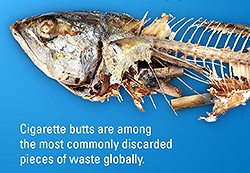Tobacco use is one of the major risk factors for cancer, cardiovascular and respiratory diseases and tobacco addiction is a chronic relapsing disease representing one of the greatest public health problem worldwide. An emerging phenomenon is the use of novel products containing nicotine, such as heated tobacco products and electronic cigarettes (or other emerging nicotine products), which are particularly popular in the young population due to their high capacity to induce nicotine addiction.
To prevent initiation and encourage the cessation of tobacco products and nicotine-containing products, the ISS carries out evidence-based studies and research, produces and disseminates guidelines and recommendations, promotes surveillance systems, provides training for healthcare professionals. Furthermore, through the Helpline to help quit smoking (800 554088) and the web platform "smettodifumare" (in Italian) ISS facilitates the public access to the healthcare services and resources.
ISS provides scientific and technical support with respect to the characteristics of novel tobacco products and the control of potentially harmful substances in the emissions of electronic cigarettes and of the e-liquids contaminants. ISS contribution in tobacco control is also active at European level with the participation in the Joint Action on Tobacco Control (JATC1) and Joint Action on strengthening projects cooperation between interested Member States and the Commission in the area of Tobacco Control (JATC2).



